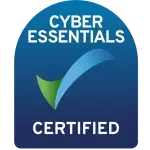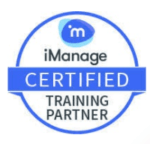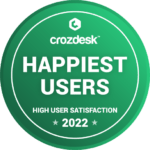
Staying ahead of the curve requires organizations to continuously invest in the development of their employees’ skills and knowledge. With the rise of remote work and the increasing need for flexible learning solutions, Learning Management Systems (LMS) have emerged as a pivotal tool for corporate eLearning and online employee training systems.
An LMS for corporate training is a powerful digital platform to revolutionize the way companies deliver, manage, and track their training programs, enabling seamless access to educational resources and fostering a culture of continuous learning.
In this article, we will delve into the world of Learning Management Systems for corporate training, exploring the multitude of benefits they offer to organizations seeking to boost workforce skills and competence. We will uncover the essential features that make LMS platforms indispensable tools for modern learning initiatives. Moreover, we will discuss how using an LMS for employee training can empower organizations to embrace the latest trends in training delivery, such as adaptive learning, mobile learning, and artificial intelligence-driven automation.
Join us on this informative journey as we explore the profound impact of Learning Management Systems on corporate eLearning and online training, and discover how they hold the key to unlocking the full potential of your workforce in today’s digital age.
IN THIS ARTICLE...
What is LMS in Corporate Training?
Learning Management Systems, at their core, are comprehensive software applications designed to facilitate and enhance the training experience for employees and learners across diverse industries.
As the demands of the corporate world continue to evolve, businesses must stay at the forefront of educational technology. By leveraging advanced technologies, LMS systems for business empower organizations to create, distribute, and monitor corporate training content efficiently.
Gone are the days of traditional classroom-based training, as these dynamic systems usher in a new era of personalized, scalable, and accessible learning experiences.
Understand Learning Management Systems for Training
This section delves into the fundamental concepts of LMS training software with learning analytics tools, shedding light on their significance, functionalities, and the myriad benefits they offer to organizations seeking to upskill their employees effectively.
From enabling seamless content delivery and learner engagement to providing valuable insights through data analytics, employee training systems have revolutionized the way companies approach corporate training and eLearning development.
LMS Definition and Functionality
Learning Management Systems are robust software applications designed to facilitate the delivery, management, and tracking of various educational and training materials in a centralized online platform. Their primary objective is to streamline the process of corporate eLearning and online training, offering organizations an efficient and scalable solution for imparting knowledge to their workforce.
LMS corporate training systems serve as virtual classrooms, allowing trainers and instructors to manage a wide range of educational content. This content can include multimedia presentations, videos, documents, quizzes, assessments, and interactive modules.
With these tools at their disposal, trainers can craft engaging and personalized learning experiences tailored to the specific needs and goals of the organization.
Key Features of LMS for Companies
- Training Content Management: LMS platforms provide a user-friendly interface for content management and delivery. Trainers can organize course materials, ensuring that they are easily accessible to learners. The system allows for updates and revisions to be implemented swiftly, ensuring that the content remains up-to-date and relevant.
- User Enrollment and Progress Tracking: LMS systems offer efficient user enrollment processes, allowing administrators to assign courses to individual learners or groups. Learners can access their assigned courses, monitor their progress, and pick up where they left off. This feature simplifies the learning journey, making it easy for learners to track their advancement through the training modules.
- Assessments and Evaluations: Assessments play a pivotal role in gauging learners’ comprehension and retention of the training material. A company LMS offers various assessment options, such as quizzes, assignments, and exams, which can be customized to suit the learning objectives. Through these evaluations, trainers can identify areas that require additional focus and tailor training content accordingly.
- Reporting and Analytics: The best Learning Management Systems for businesses generate comprehensive reports and analytics on learners’ performance, progress, and engagement with the training content. These insights offer valuable data-driven feedback for trainers and administrators, enabling them to make informed decisions to optimize the training program’s effectiveness.
- Customization and Integration: Modern LMS for corporate training offer customization options, allowing organizations to align the platform’s appearance and features with their branding and unique requirements. Additionally, LMS platforms often integrate with other software systems, such as human resources management systems (HRMS) and customer relationship management (CRM) tools, streamlining data exchange and workflow.
Why Use an LMS for Training & Corporate eLearning?
Corporate eLearning has witnessed a remarkable transformation over the years, with Learning Management Systems for corporate training emerging as the backbone of modern learning programs. The integration of LMS in corporate eLearning offers a plethora of benefits that drive organizations towards more efficient and effective learning strategies.
Let’s explore some of the key advantages of using an LMS for training employees:
Cost-effectiveness and Efficiency
One of the primary advantages of adopting an LMS for corporate training and eLearning is its cost-effectiveness. Traditional training methods involve significant expenses, including venue rentals, printed materials, and travel costs.
With an LMS, organizations can eliminate these overheads by delivering training online. Employees can access learning materials from anywhere, reducing the need for physical classrooms and travel.
Furthermore, an LMS streamlines administrative tasks by automating registration, course enrollment, and progress tracking. This increased efficiency allows training managers to focus more on developing engaging content and improving the learning experience.
Scalability and Accessibility
Scalability is a critical factor for organizations that need to train a large number of employees across various locations. LMS platforms excel in this regard as they can easily accommodate thousands of learners simultaneously without compromising the learning experience.
Whether you need an LMS for small businesses or large enterprises, a Learning Management System can cater to your training needs effectively.
In addition to scalability, LMS ensures 24/7 accessibility to learning materials. Employees can access courses and resources at their convenience, allowing them to learn at their own pace without disrupting their work schedules. This accessibility empowers learners to take control of their learning journey and boosts overall engagement and knowledge retention.
Tracking and Analytics
An LMS for training provides comprehensive tracking and analytics features that enable training administrators and managers to monitor learners’ progress effectively. Real-time data on course completion rates, assessment scores, and participation levels offer valuable insights into the effectiveness of training programs.
Using this data-driven approach, organizations can identify areas that require improvement, refine training content, and tailor courses to meet the specific needs of their employees.
Moreover, the ability to generate detailed reports simplifies compliance reporting and aids in demonstrating the return on investment (ROI) of training initiatives.
Standardization and Consistency
Maintaining consistency in training content and delivery across various departments and locations can be a challenge. LMS platforms offer a centralized repository for learning materials, ensuring that all employees receive the same high-quality training experience.
This standardization helps organizations establish a unified corporate culture and ensures that essential information is uniformly conveyed to the entire workforce.
Employee Engagement and Motivation
Engaging employees in the learning process is crucial for effective training outcomes. Employee training systems often incorporate gamification elements, interactive quizzes, and multimedia content to create an immersive learning experience.
By making learning enjoyable and challenging, LMS fosters higher levels of engagement and motivation among employees, leading to increased knowledge retention and better performance.
Choosing the Right LMS for Corporate Training
When selecting the most suitable Learning Management System for your organization’s training needs, it is crucial to assess various factors carefully. Choosing the best LMS for your training requirements can significantly impact the effectiveness and success of your corporate eLearning initiatives.
By thoroughly evaluating these considerations, your organization can make an informed decision when choosing an LMS that best aligns with your training objectives and maximizes the potential for employee development and growth.
Here are key considerations to keep in mind during the selection process:
LMS Scalability
Ensure that the LMS can accommodate your current and future needs as your organization grows. It should be able to handle an increasing number of learners and course materials without compromising performance.
Branding & Customization
Look for an LMS that offers flexibility in customization to align with your company’s branding, learning objectives, and training content. A personalized learning experience can boost learner engagement and knowledge retention.
Systems Integration
Assess the LMS’s compatibility with your existing software and systems, such as HR systems, content authoring tools, video conferencing platforms, and more. Seamless integrations can streamline data flow and enhance the overall training experience.
User Interface (UI) & User Experience (UX)
A user-friendly interface is essential for both learners and administrators. The LMS should have an intuitive navigation system and clear layout, making it easy for learners to access content and track their progress. Similarly, administrators should find it simple to manage courses and track learner performance.
Pricing and Cost Structure
Compare the pricing models of different LMS providers and consider the long-term costs associated with the platform. Some LMS for training are charged based on the number of users or active learners, while others have flat-rate pricing. Choose a plan that aligns with your budget and expected usage.
Security and Compliance
Security is paramount when dealing with sensitive training data and user information. Ensure that the LMS adheres to industry standards and protocols to safeguard data integrity and user privacy. Additionally, if your organization operates in a regulated industry, confirm that the LMS meets relevant compliance requirements.
Support and Training
Assess the level of customer support and training offered by the LMS provider. Look for comprehensive onboarding, training resources, and responsive customer support to help troubleshoot issues and ensure smooth implementation.
Implementing LMS in Corporate Training
Once an organization has selected the appropriate Learning Management System to meet its training needs, the next crucial step is the implementation process. This section delves into two vital aspects of LMS implementation in corporate training: User Management and Learner Enrollment, and Assessment and Certification.
User Management and Learner Enrollment
User management is a fundamental feature of any LMS, enabling administrators to efficiently handle the learners’ enrollment and course assignments. Administrators can add new users, modify user profiles, and organize learners into specific user groups for targeted training within the best corporate training LMS platforms.
This structured approach allows seamless access to the relevant training content based on an individual’s role or department within the organization.
One of the key advantages of our LMS is its flexibility in granting distinct user roles and permissions. Trainers, learners of different types, and administrators each have their designated roles with varying levels of access and control.
Trainers can create and manage courses, learners can access and complete assigned modules, while administrators oversee the entire training process, monitor progress, and generate reports. This role-based flexibility ensures a smooth and secure training experience for all stakeholders involved.
Skills Assessment and Certification
Assessments are an essential component of effective corporate training, and LMS platforms offer various assessment options to evaluate learners’ understanding and knowledge retention. Quizzes, assignments, and exams can be easily integrated into the courses, allowing trainers to gauge learners’ progress and identify areas that may need further reinforcement.
Successful completion of corporate training modules within the LMS often leads to certifications, providing learners with tangible recognition of their achievements. These certifications serve as a testament to their acquired skills and knowledge, boosting their confidence and motivation to continue their learning journey. In a corporate setting, certifications can be particularly valuable for career advancement and professional development.
By implementing assessment and certification features within the LMS, organizations can instill a culture of continuous learning and competency-building among their employees. These features also contribute to a comprehensive training approach, ensuring that learners are not only exposed to the material but also held accountable for their understanding and performance.
Future Trends for LMS in Corporate Training
The incorporation of AI and automation in LMS training platforms signifies the industry’s shift towards more efficient and learner-centric solutions. By embracing these future trends, organizations can elevate their corporate training programs, increase learner engagement, and foster a culture of continuous learning.
Personalization and Adaptive Learning
Personalized learning paths and adaptive learning algorithms are revolutionizing the corporate training landscape. Traditional one-size-fits-all training approaches are gradually giving way to tailored learning experiences that cater to individual learner needs. LMSs for employee training are at the forefront of this transformation, leveraging advanced data analytics and machine learning to create personalized learning journeys.
With personalization, learners receive content and activities based on their strengths, weaknesses, learning pace, and preferences. Adaptive learning algorithms continually analyze learner performance and adjust the difficulty and content of courses accordingly. This dynamic approach ensures that learners receive relevant and challenging material, maximizing knowledge retention and engagement.
By adopting personalization and adaptive learning, organizations can significantly improve training outcomes. Learners feel more motivated and invested in their development, leading to higher completion rates and improved skill mastery. Additionally, LMS platforms equipped with such features offer trainers valuable insights into learner progress, enabling targeted interventions and content enhancements.
Mobile Learning and Microlearning
The ubiquity of mobile devices has driven the surge in mobile learning, allowing learners to access training content anytime, anywhere. LMS platforms are adapting to this trend by optimizing content delivery for various mobile devices, such as smartphones and tablets. Mobile learning enables employees to fit training into their busy schedules, promoting continuous learning without disrupting work routines.
Microlearning is another powerful trend gaining popularity within LMS-supported corporate training. This approach breaks down complex topics into bite-sized, easily digestible modules. Each module typically takes only a few minutes to complete, making it ideal for learners with limited time availability or short attention spans. LMS platforms are designed to deliver microlearning content effectively, enabling learners to grasp key concepts efficiently.
The combination of mobile learning and microlearning enhances learner engagement and knowledge retention. Learners can quickly access relevant information on the go, reinforcing learning in real-life situations. Furthermore, microlearning fosters a culture of ongoing learning, encouraging employees to pursue continuous improvement and skill development.
Artificial Intelligence (AI) and Automation
Artificial Intelligence (AI) is reshaping various industries, and corporate training is no exception. LMS platforms are integrating AI capabilities to provide intelligent recommendations, automate routine administrative tasks, and enhance learner engagement.
AI-driven recommendation systems analyze learner behavior, performance data, and preferences to suggest personalized learning paths and relevant courses. This helps learners discover content aligned with their interests and skill development needs, encouraging active participation and self-directed learning.
Automation in LMS platforms simplifies and accelerates administrative tasks, such as course enrollment, grading, and certification issuance. By automating these processes, trainers, and administrators can focus on more strategic aspects of training, like content creation and learner support.
Furthermore, AI-powered chatbots and virtual assistants are becoming integral parts of LMS systems, providing instant support to learners’ queries and challenges. These smart assistants improve the overall learning experience by offering timely guidance and reducing the dependency on human intervention.
Empower Your Workforce with a Cutting-Edge LMS
Learning Management Systems play a vital role in modern corporate eLearning and online training. They serve as powerful tools for organizations to efficiently manage and deliver training content to their employees. Here are the key takeaways from this article:
- Crucial Role of LMS: LMS platforms are essential for streamlining corporate training initiatives, providing a centralized platform for content creation, delivery, tracking, and management. They enable organizations to adapt to the evolving learning landscape and meet the demands of remote and digital training.
- Benefits of LMS: Implementing an LMS brings numerous advantages, including significant cost savings through the elimination of physical training facilities and materials. The scalability of LMS ensures that organizations of all sizes can accommodate a large number of learners simultaneously. The 24/7 accessibility empowers employees to learn at their own pace and convenience, fostering continuous skill development.
- Data-Driven Decision Making: LMS for training solutions offer valuable insights through real-time tracking and analytics. Organizations can leverage this data to identify areas of improvement, personalized learning paths, and optimize training programs for maximum effectiveness.
As organizations strive to stay competitive and invest in the growth of their workforce, it is crucial to choose the right LMS solution. In this regard, we encourage organizations to explore Intellek’s powerful LMS for corporate training. With its user-friendly interface, robust features, and adaptability, Intellek LMS can elevate training programs and empower employees to reach their full potential.
Embrace the digital transformation in learning and training with Intellek LMS, and embark on a journey of enhanced efficiency, engagement, and success in corporate education.
Intellek (formerly TutorPro) is a founding member of the learning technology industry. With a presence in the USA, UK, Canada, and the EU – for over 30 years we have pioneered the development of cutting-edge eLearning software and online training solutions, with a large and diverse portfolio of international clientele.
Disclaimer: We use all the tools available including generative AI to create relevant and engaging content.






